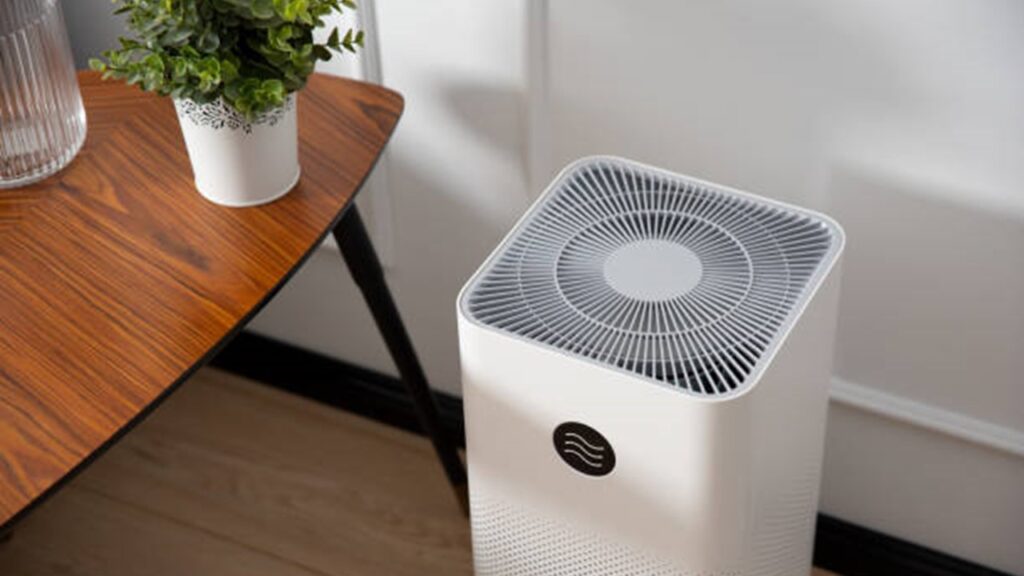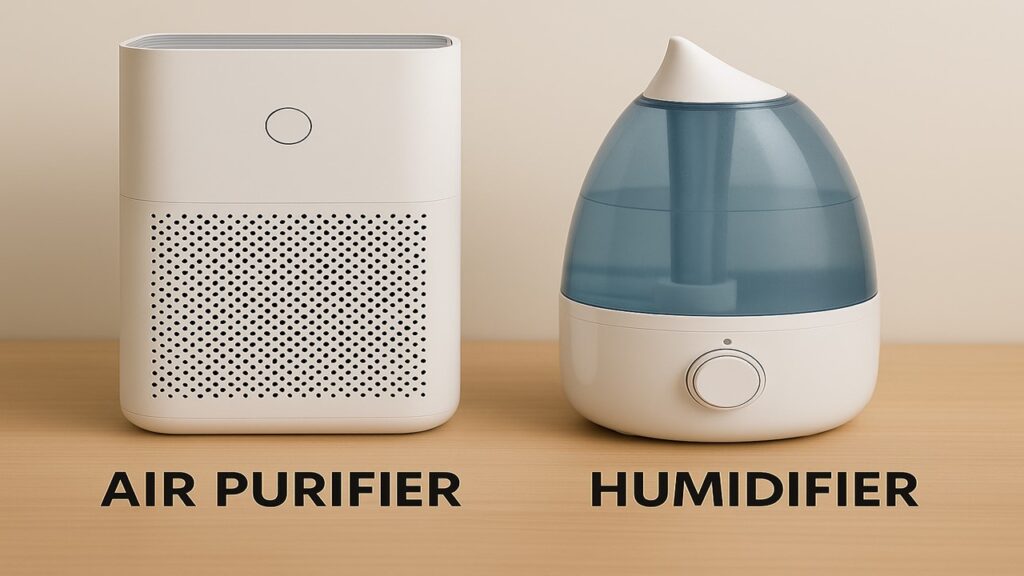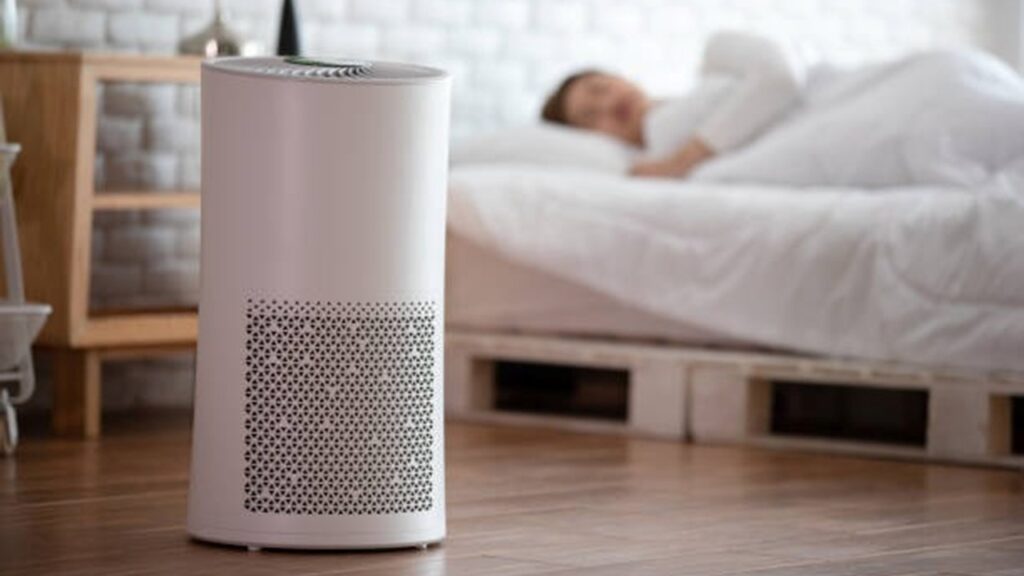
The best water for a humidifier is distilled water. It’s free from minerals and impurities, so it prevents white dust, keeps your humidifier clean, and protects air quality. Reverse osmosis water is a good backup, while tap water can leave buildup and promote mold.
In this article, we’ll explain the best water types for humidifiers, why distilled water is safest, and the problems with using tap water. You’ll learn practical tips for keeping your humidifier running smoothly and safely.
Why the Water You Use in a Humidifier Really Matters
The water you put in a humidifier directly affects how well it works and the air you breathe. Using the wrong water, like tap water, can lead to white dust, mineral buildup, and even mold growth in the humidifier. This buildup not only shortens the life of the machine but can also affect indoor air quality, possibly causing health issues like allergies or respiratory irritation.
Distilled water, on the other hand, is pure and free from minerals, so it helps keep your humidifier clean and safe. If you use water with minerals, like tap or spring water, those minerals can be turned into fine particles and spread into the air as dust. Over time, these particles can settle on furniture, make surfaces feel dirty, and even get into your lungs when you breathe.
So, if you want a humidifier that runs smoothly and gives you clean, healthy air, the kind of water you use is a big deal. Picking the right water is the first step in keeping your humidifier in good shape and avoiding unnecessary problems.
What Type of Water Is Best for Humidifiers?
The best water for a humidifier is distilled water. It’s free of minerals and impurities that can harm your humidifier and affect the air you breathe. If distilled water isn’t an option, reverse osmosis or demineralized water can also be good choices, but they aren’t as pure as distilled water.
Distilled Water: The Gold Standard
Distilled water is water that has been boiled and the steam collected, leaving behind minerals and impurities. It’s the top choice because it prevents white dust, keeps your humidifier clean, and helps it last longer. Distilled water also protects your air from unwanted particles that can trigger allergies or asthma.
Reverse Osmosis Water: A Good Alternative
Reverse osmosis (RO) water is filtered through a special system that removes most minerals and impurities. While it’s not as pure as distilled water, it’s still a much better option than tap water. RO water helps reduce white dust and keeps your humidifier in better shape than regular water.
Demineralized or Purified Water: Is It Good Enough?
Demineralized and purified water have had some minerals removed, but they aren’t as clean as distilled or RO water. They can still leave behind a small amount of minerals that could build up in your humidifier over time. If you can’t get distilled or RO water, these can work in a pinch, but you might need to clean your humidifier more often.
Can You Use Tap Water in a Humidifier?
Yes, you can use tap water in a humidifier, but it’s not the best choice. Tap water contains minerals and impurities that can cause white dust, clog parts inside the humidifier, and possibly lead to mold growth over time. This can make your humidifier harder to clean and may even affect the air you breathe.
While it’s tempting to use tap water because it’s easy to get, it comes with its own set of problems. Here’s what you need to know.
The Risks of Tap Water
Tap water carries minerals like calcium and magnesium, which can leave behind white dust in your home when the humidifier runs. This dust can settle on furniture, floors, and even get into your lungs, making the air feel less clean. Tap water can also promote mold and bacteria growth inside the humidifier because it may contain microorganisms. These can multiply in the moist environment and then get pushed into the air, which can be a problem for people with allergies or asthma.
Another risk is mineral buildup inside the humidifier. Over time, this can clog parts and cause the machine to break down sooner than expected.
Situations Where Tap Water Might Be Acceptable
There are a few cases where using tap water could be fine. If you have an evaporative humidifier with a good filter, it can trap some minerals and reduce white dust. In a pinch, you can use tap water for a short time, but it’s best to clean the humidifier more often to avoid buildup.
Also, if you live in an area where the water is naturally soft and has fewer minerals, the risks might be lower. Still, it’s not the best idea for long-term use, and switching to distilled or RO water is the better option when you can.
Is Bottled Water or Boiled Water Right for Humidifiers?
Bottled or boiled water might seem like easy options for your humidifier, but they each have pros and cons. Bottled water can contain minerals depending on the type, and boiled water does not remove minerals. Both can cause white dust and buildup, though they may be safer than straight tap water in some cases.
Let’s break down the details.
Bottled Water: Safe or Risky?
Bottled water is not all the same. Some bottled waters, like spring water or mineral water, contain minerals that can leave behind white dust in your humidifier. This can cause the same issues as tap water: clogging the machine, creating buildup, and adding particles to the air.
However, distilled bottled water is safe for humidifiers. If you buy bottled water, always check the label. If it says distilled, that’s great. If it says mineral or spring, it’s better to skip it.
Boiled Water: Does It Work?
Boiling water kills bacteria, but it doesn’t remove minerals. In fact, it can make mineral concentration slightly higher because water evaporates during boiling, leaving minerals behind. Using boiled water in your humidifier won’t stop white dust or mineral buildup.
It’s safer than untreated tap water when it comes to germs, but it won’t protect your humidifier from scaling or dust issues. If you choose boiled water, you’ll still need to clean your humidifier regularly.
How to Make Tap Water Safer for Your Humidifier
You can make tap water a bit safer for your humidifier by filtering it, distilling it, or cleaning the humidifier more often. While it’s not as safe as distilled water, these steps can help reduce mineral buildup and lower the risk of bacteria and mold.
Let’s go over some ways to make tap water a better option for your humidifier.
Using a Water Filter Pitcher
A simple water filter pitcher can remove some impurities from tap water, like chlorine and some heavy metals. However, it won’t take out most minerals like calcium and magnesium, which are the main cause of white dust and buildup. It’s a small step that helps a bit, but it’s not a full solution for humidifiers.
Using a Home Water Distiller
A home water distiller heats water, turns it into steam, and collects the pure vapor. This process removes nearly all minerals and impurities, giving you water that’s similar to store-bought distilled water. It’s a great option for humidifiers, but it takes time and uses energy, so it might not be practical for everyone.
Installing a Reverse Osmosis System
A reverse osmosis (RO) system filters water through a special membrane, removing most minerals, bacteria, and impurities. RO water is much cleaner than regular tap water and can reduce the risk of buildup in your humidifier. If you have an RO system at home, it’s a solid choice for your humidifier water.
Cleaning Your Humidifier More Often
If you have no choice but to use tap water, the best thing you can do is clean your humidifier often. Daily emptying, wiping down the tank, and a deep clean at least once a week can help reduce the risks of mineral buildup, white dust, and mold growth. It’s more work, but it helps keep your air healthier.
Special Considerations for Different Humidifier Types
Not all humidifiers handle water the same way. The type of humidifier you have can affect what water you should use. Knowing the difference can help you make better choices and avoid problems like white dust, buildup, and health issues.
Here’s what you need to know for each type.
Ultrasonic Humidifiers
Ultrasonic humidifiers use high-frequency vibrations to create mist. They spray whatever is in the water, including minerals, straight into the air. This is why using distilled or reverse osmosis water is strongly recommended. Tap water can cause a lot of white dust and buildup, and you’ll have to clean the unit often if you use it.
Evaporative Humidifiers
Evaporative humidifiers use a wick filter that soaks up water, and a fan blows air through the wet filter. This filter can catch some minerals, so tap water might not be as risky. Still, the filter needs regular cleaning and replacement, and white dust can still happen, though usually less than in ultrasonic units.
Warm Mist (Steam) Humidifiers
Warm mist humidifiers boil water before releasing it as steam, which can kill some bacteria. However, minerals stay behind, so tap water can still cause buildup inside the unit. Distilled water is still the safest option, but boiled water that’s been cooled can work in a pinch.
Final Thoughts
For the best performance and cleaner air, distilled water is the top choice for any humidifier. It’s free of minerals, helps avoid white dust, and keeps your machine running smoothly for longer.
If distilled water isn’t available, reverse osmosis water is a good backup. It removes most minerals and impurities and is much better than plain tap water. Filtered or purified water can also work, but you’ll need to keep an eye on buildup.
Using tap water is the easiest option, but it brings risks. If you have to use it, clean your humidifier often to reduce mineral buildup and mold. The right water keeps your humidifier working well and helps you breathe easier.
Related FAQs
Can I Use Spring Water in My Humidifier?
It’s not a good idea. Spring water contains minerals like calcium and magnesium, which can create white dust, clog your humidifier, and reduce its lifespan. Stick to distilled or purified water when possible.
Is Mineral Water Safe for Humidifiers?
No, mineral water isn’t safe for humidifiers. It has a high mineral content that can cause scaling, white dust, and extra maintenance. It’s better to use distilled or reverse osmosis water for a cleaner humidifier and healthier air.
How Does Water Hardness Affect My Humidifier?
Hard water contains more minerals, which can lead to white dust, mineral deposits, and a clogged humidifier over time. Using soft or distilled water helps prevent these issues and keeps the humidifier running longer.
Will Using Tap Water Void My Humidifier Warranty?
Many manufacturers recommend using distilled water, and some warranties may be voided if tap water causes damage. Always check your humidifier’s manual for water recommendations and warranty details.
Does Using the Wrong Water Damage My Humidifier?
Yes, using the wrong water, like tap or mineral water, can lead to mineral buildup, white dust, and even mold growth. This can damage your humidifier’s parts and reduce its efficiency.

At our core, we’re a group of passionate clean air equipments and appliances enthusiasts. We dive deep into the world of fresh air around us. We try to provide as much value to the readers with our information and how to blog articles as possible along with proper information-based reviews as well.




